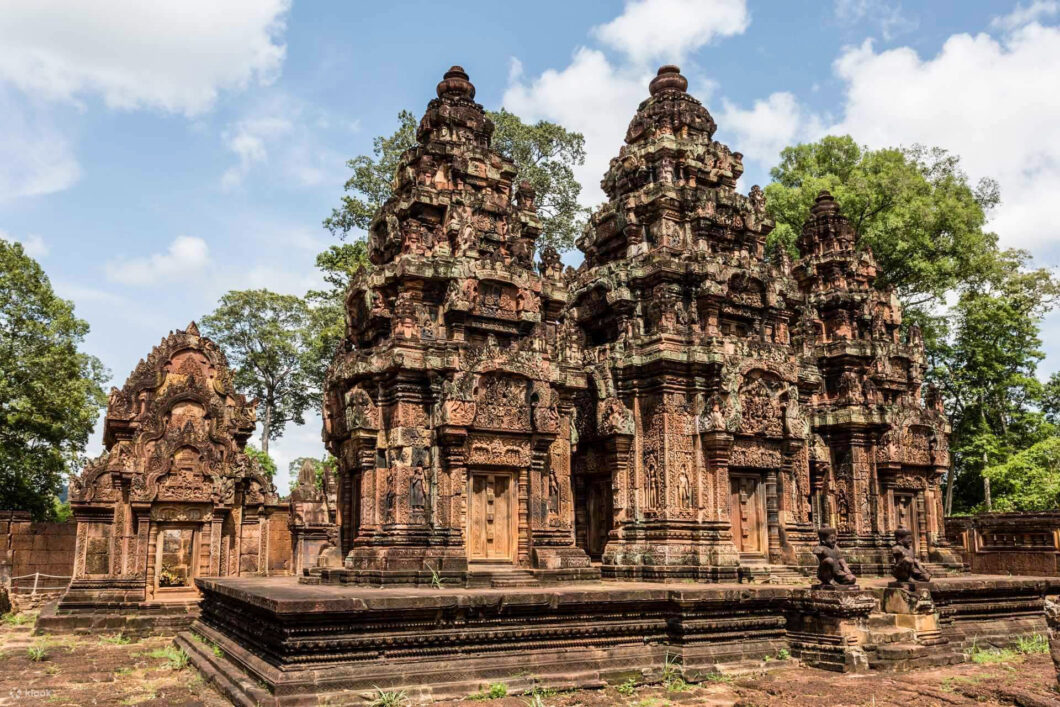Banteay Srei was dedicated on 22 April 967, often spoken as the jewel of Khmer art and described as a gem of a temple, this small monument of pink sandstone boasts some very fine sculptures with no equivalent in other Khmer temples. The site is exquisite and its access is a nicely landscaped garden.
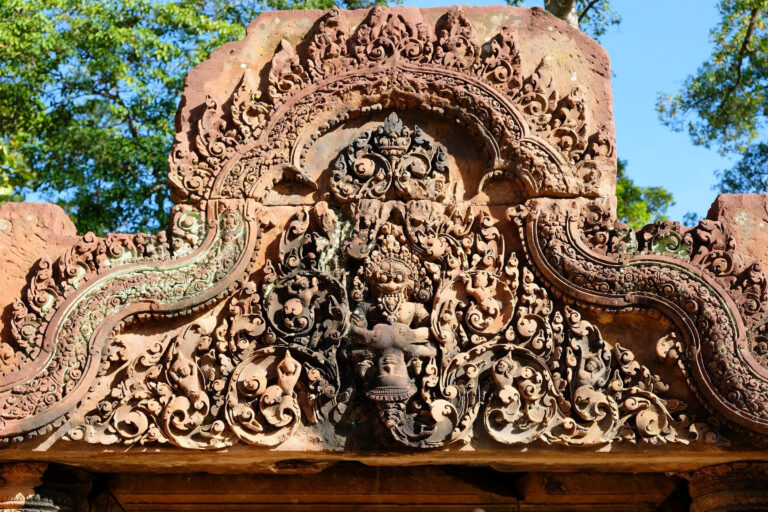
History
Banteay Srei temple was founded by an important dignitary who served during the reign of Rajendravarman and then in the reign of Jayavarman V. Commenced in 967 AD, this work attracted the support of his brother and sister, as attested by inscriptions on the stone door jambs of the lateral sanctuaries of the central group.
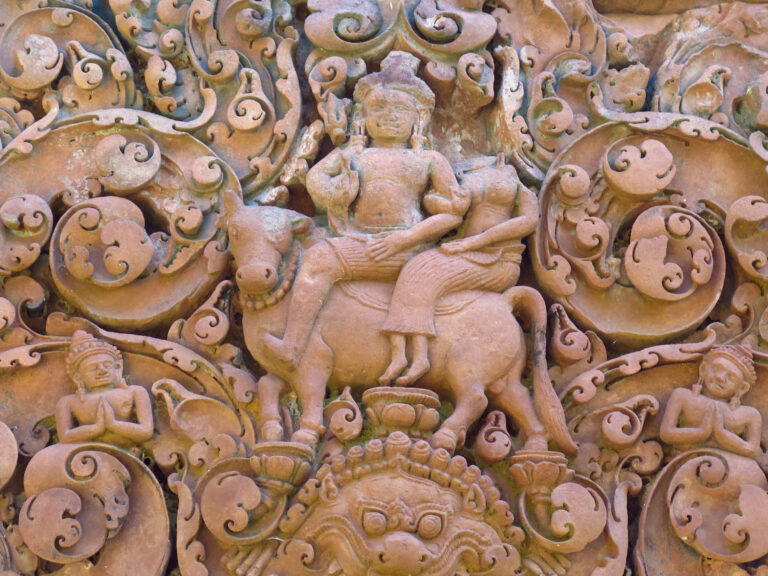
At this temple, for the first-time pediments appear with stories, notably those on the north and south libraries. These exhibit themes related to Shivaism (the demon Ravana shaking Mount Kailasa above which Shiva is enthroned; with Kama arriving to disturb his meditation). Other pediments portray Vishnuist themes such as ‘The Rain of Indra’ and ‘The Killing of Kamsa’. Two other famous pediments from this monument now can be found at the National Museum of Cambodia, Phnom Penh and at the Musé national des Arts asiatiques – Guimet, Paris. Numerous lintels also display sculptures from Indian mythology.
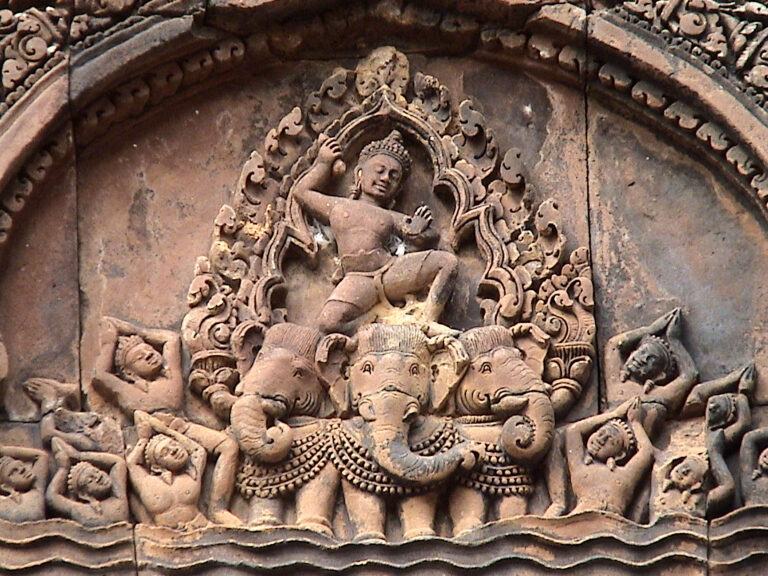
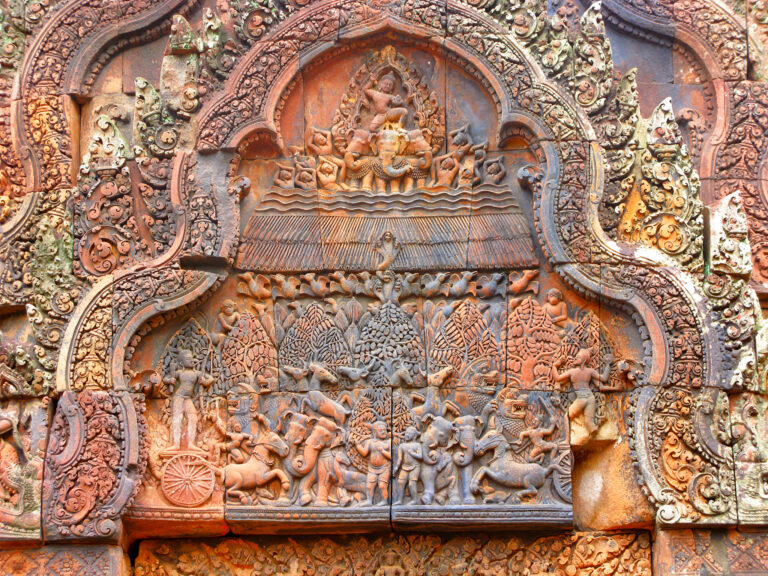
Proof of the continued occupation and therefore the maintenance of Banteay Srei and the surrounding site called Ishvarapura (with the Siem Reap river as the source of water), is provided by one important inscription of the early 14th century that can be seen on a stone door jamb of the gopura in the third enclosure.

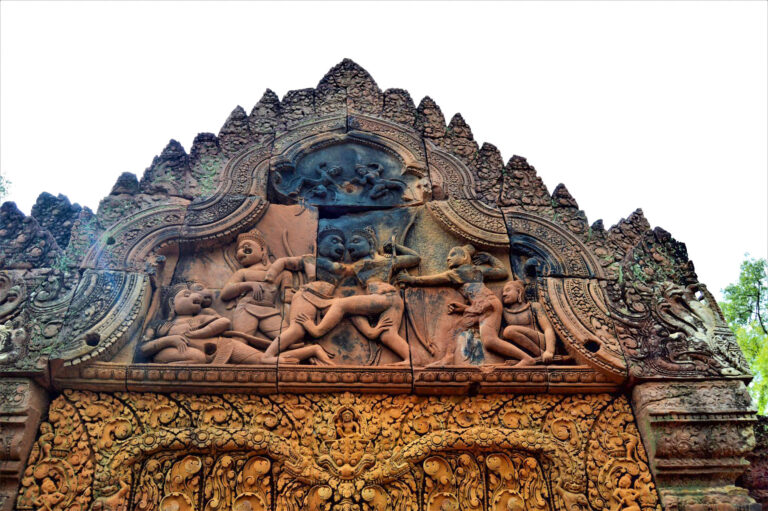
APSARA Authority and the Swiss government officially commenced the project, ‘Conservation of Banteay Srei’ at the beginning of July 2002.This project is planned for a three-year period from 2002 to 2005. It focuses on the conservation and improvement of the site covering restoration and maintenance of the temple; landscaping of the surroundings and protection of the natural environment in addition to a detailed study of the history of the site.
